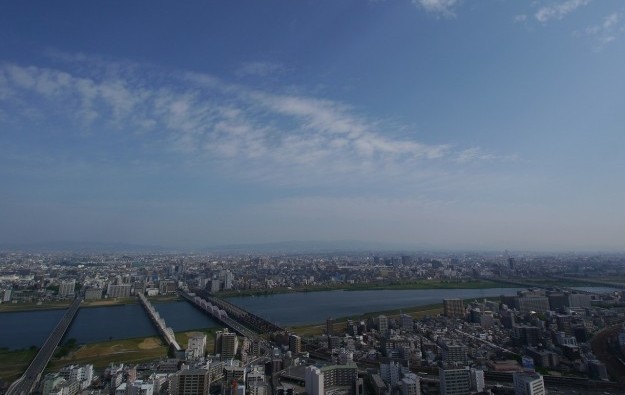Three Japan IRs could generate US$8bln GGR: Bernstein
Aug 06, 2019 Newsdesk Japan, Latest News, Top of the deck

A Japanese casino industry made of two major casino resorts and a regional property could eventually generate gross gaming revenue (GGR) of US$7 billion to US$8 billion per year, says brokerage Sanford C. Bernstein.
“If only one metropolitan area is selected with two regional integrated resorts (IRs), the revenue would be lower,” said a team of Sanford Bernstein analysts in a report released on Tuesday.
“We would estimate with two major properties (i.e., in Osaka and Yokohama) and one regional property, GGR at ramp up could be in the range of US$7 billion to US$8 billion,” Sanford Bernstein analysts Vitaly Umansky, Eunice Lee and Kelsey Zhu wrote.
They added: “Non-gaming revenue (which in Macau represents less than 10 percent of gross revenues and in Singapore 25 percent) would be a higher percentage in Japan and could be in the US$2 billion to US$3 billion range. Thus, total gross revenues for two metropolitan-city IRs and one regional IR could reach US$9 billion to US$11 billion.”
The analysts cautioned that the potential size of Japan’s gaming market was “speculative” at this stage and an act of “guesstimation”.
The brokerage additionally estimated that Japan’s gaming industry could “take some gaming market share” from other gaming destinations in Asia, such as South Korea and Philippines; but the analysts forecast a more limited impact on Macau’s gaming industry.
“The three Japan IRs that will be authorised in the first round will be located across the country in three different municipalities. This is [a] very different market structure of creating a centrally located critical mass (like Macau, Manila, and Singapore which all benefit from their critical mass locations),” the Sanford Bernstein analysts wrote.
Casinos by 2025 ‘not likely’
While two phases of general enabling legislation have already been passed on the casino topic, the national authorities in Japan have yet to issue the so-called “basic policy” on IRs, including the criteria for deciding where they should be located. Up to three venues will be permitted in a first phase of liberalisation.
“The process of setting up regulations and guidelines has continued to be slow-moving, and the bidding process [for the first IRs] will likely take another 12 to 18 months,” Sanford Bernstein wrote in its report.
It added: “The development process after bids are announced could take another five years. Realistically, the first IR is not likely to open in Japan before 2025.”
The authorities in Osaka have mentioned plans for a casino resort there by the time the Osaka World Expo opens in 2025. “This opening deadline seems aggressive at this time,” the brokerage said.
The Japanese national authorities are currently working on the setting up of Japan’s casino administration committee, the body that will be in charge of casino regulation, safety and probity in that newly-liberalising market. The recruitment of the five most senior permanent officials of the casino administration committee will be subject to approval by Japan’s parliament.
The names for the top positions of the committee are expected to be submitted for parliamentary approval at what is known as an extraordinary session in the autumn, Japanese media outlet Sankei Shimbun reported on Monday.
Sankei Shimbun additionally reported – citing unnamed sources – that the national authorities planned to have the so-called “basic policy” on IRs ready by March-end next year.
Those local governments qualified to apply to the national government for permission to host an IR – namely prefectures and ordinance-level cities – need to team with private-sector partners prior making their bid to the national government. But they can only do so after Japan’s central government announces the details of the IR basic policy.
Japan’s Integrated Resorts (IR) Implementation Act, passed in July last year, stipulates that the basic policy for the development of integrated resorts should be put forward within two years.
In its Tuesday report, the Sanford Bernstein analysts said there were in total “47 prefectures and 20 cities” in Japan eligible to host an IR.
The brokerage named metropolitan municipalities Osaka and Yokohama as those with “higher chance of hosting an IR”, although the mayor of Yokohama “has yet to decide if going forward with [an] IR bid”. Among the contenders for a regional casino, the brokerage named Nagasaki and Hokkaido as having “a higher chance” of winning an IR licence.
Related articles
-
 Visitors, steady spend to support Macau...
Visitors, steady spend to support Macau...Jul 18, 2024
-
 Macau GGR for first 14 days of July...
Macau GGR for first 14 days of July...Jul 15, 2024
More news
-
 Donaco EBITDA up y-o-y to above US$4mln...
Donaco EBITDA up y-o-y to above US$4mln...Jul 26, 2024
-
 HK listed Palasino upgrades Czech...
HK listed Palasino upgrades Czech...Jul 26, 2024
Latest News
Jul 26, 2024
Border-casino operator Donaco International Ltd has achieved a 164.17-percent year-on-year increase in its latest quarterly group earnings before interest, taxation, depreciation and amortisation...Sign up to our FREE Newsletter
 (Click here for more)
(Click here for more)
Pick of the Day
”We’ve got more traction outside of Macau at the moment. But Macau’s going be a bigger focus for us”
David Punter
Regional representative at Konami Australia
Most Popular
 Sheraton brand to exit Londoner Macao, to be Londoner Grand July 25, 2024
Sheraton brand to exit Londoner Macao, to be Londoner Grand July 25, 2024  Macau regulator probes unlicensed gaming agents July 24, 2024
Macau regulator probes unlicensed gaming agents July 24, 2024  Philippines gives 20k aliens in POGOs 60 days to leave July 25, 2024
Philippines gives 20k aliens in POGOs 60 days to leave July 25, 2024  Philippines-listed DigiPlus says not affected by POGO ban July 24, 2024
Philippines-listed DigiPlus says not affected by POGO ban July 24, 2024  Sands China 2Q EBITDA down q-o-q amid low hold, renovation July 25, 2024
Sands China 2Q EBITDA down q-o-q amid low hold, renovation July 25, 2024






